2023-2024 Objective: Readable PDF Files
PDFs that are scanned images of text create a barrier for students who use assistive technology, such as text-to-speech readers. At CSU, image-only PDF files are the most commonly reported electronic accessibility issue. Using UDOIT to make these files readable will improve students’ access to course readings and lower instructors’ burden to fix PDFs mid-semester or as part of a student’s disability accommodation.
Fixing as many of these PDFs as possible will take us forward significantly in our aim to be a truly inclusive campus. We now have a tool available within Canvas to help with the task: UDOIT Advantage.
Throughout the year of 2023-2024, we encourage the CSU community to work on improving the quality of scanned PDFs. We won’t get there overnight. What’s important is to begin, and to start making progress. Set a reasonable goal. For example:
- 5 PDFs per week
- Each week, fix the next week’s assigned readings
- Focus on one course throughout the semester
Accessibility is a marathon, not a sprint. Do what you can, and over time we’ll all get better.
Caveat for Accommodations
This initiative is focused on a proactive approach so that when you have a student with a need in the future, your materials will already be accessible. If you already have a student with an accommodation for Accessible PDF, timeliness is essential and this gradual approach may not be sufficient for their accommodation.
Video Tutorial
Written Tutorial with Screenshots
Open UDOIT
Click on the UDOIT Cloud 3.0 link in your course navigation. This automatically starts a course scan.
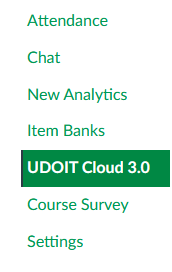
Review Files
Click on the “Review Files” tab in UDOIT. (Note that UDOIT also scans for other accessibility issues, but we are focusing on PDF for this year. If you would like to see what other types of issues exist in your course, click on the “UFIXIT” tab. For more on the UFIXIT tab, see UDOIT for Canvas.)
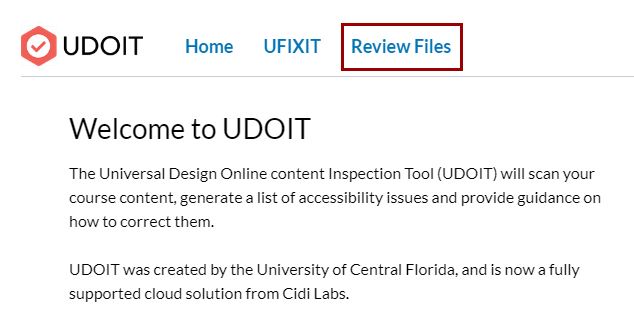
Filter for "Scanned File" Issue
If you have a lot of files, filter the results to see the top priority PDF files that need to be fixed.
- Click on the “Filter” button:

- Select Scanned File” under Issues:
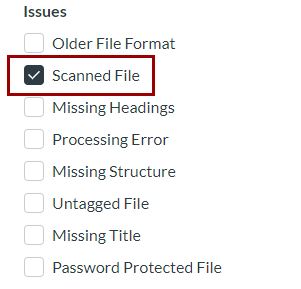
Convert to Auto Tagged PDF
Click the “Review” button to fix an individual file.

Under Alternate Formats, select “Request” next to Auto Tagged PDF.
- It may take a while to convert the file. You can close this window and it will continue converting the file. Just remember to go back and replace the original once it’s completed (click on Review again).
- Note that you can also convert to other formats, including html, ePub, and mp3. You can provide multiple ways to access the content by linking these in your course.
- For someone who needs fully accessible PDFs, the auto tagged PDF will not be sufficient. The tags will need to be edited. However, either html or ePub may work well for them and save this extra step.
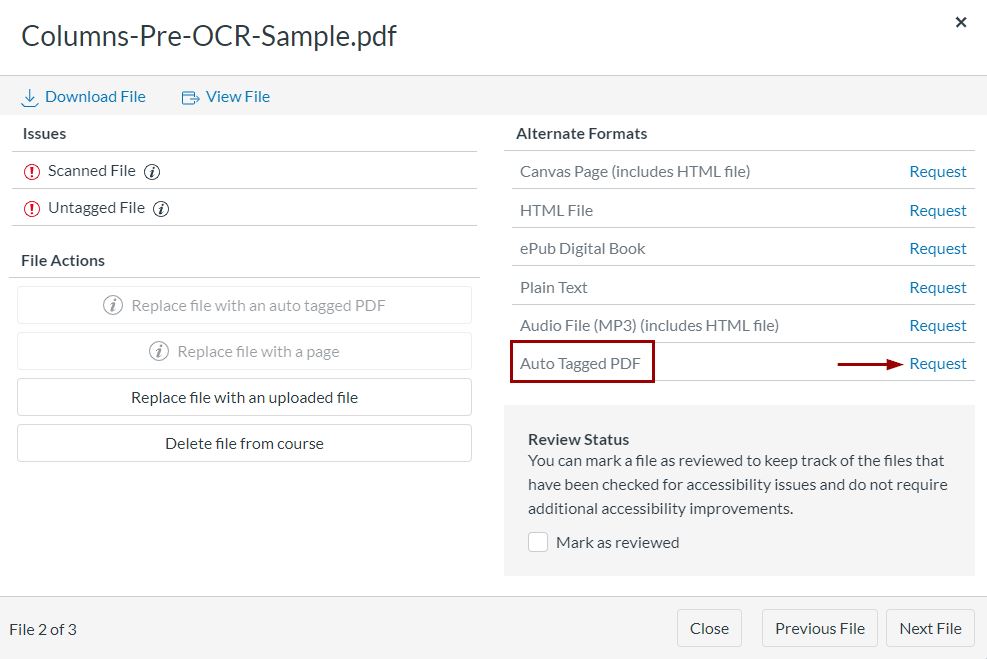
Replace the Original File
Once the conversion is complete, select “Replace file with an auto tagged PDF” under File Actions.
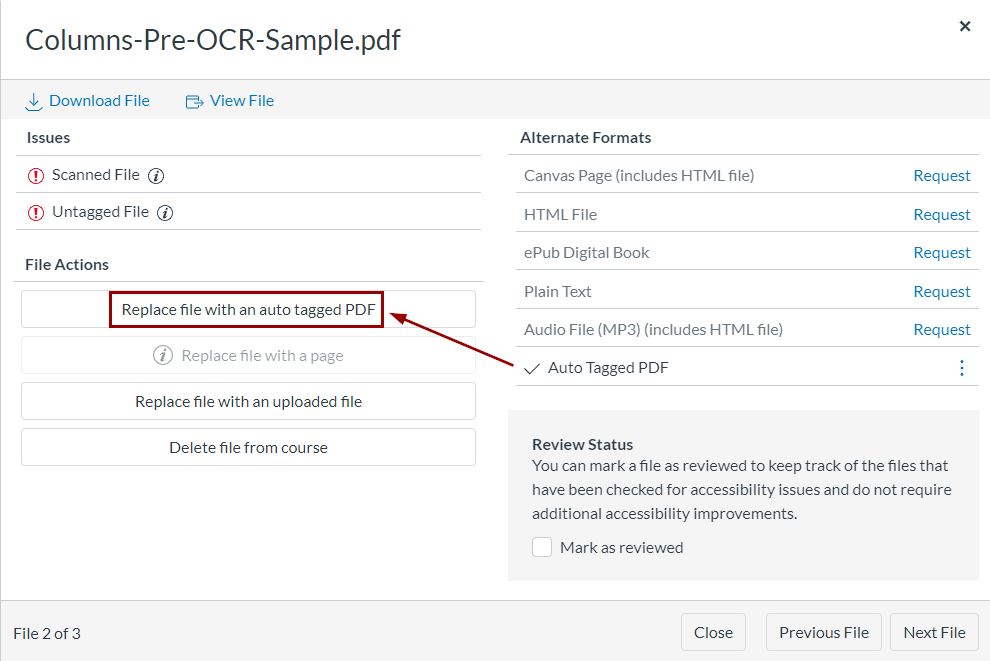
This will open a preview window.
- At this point, you can download a copy to distribute outside of Canvas and use in other courses.
- Select “Replace File” to automatically update the file within your course to the more accessible format.
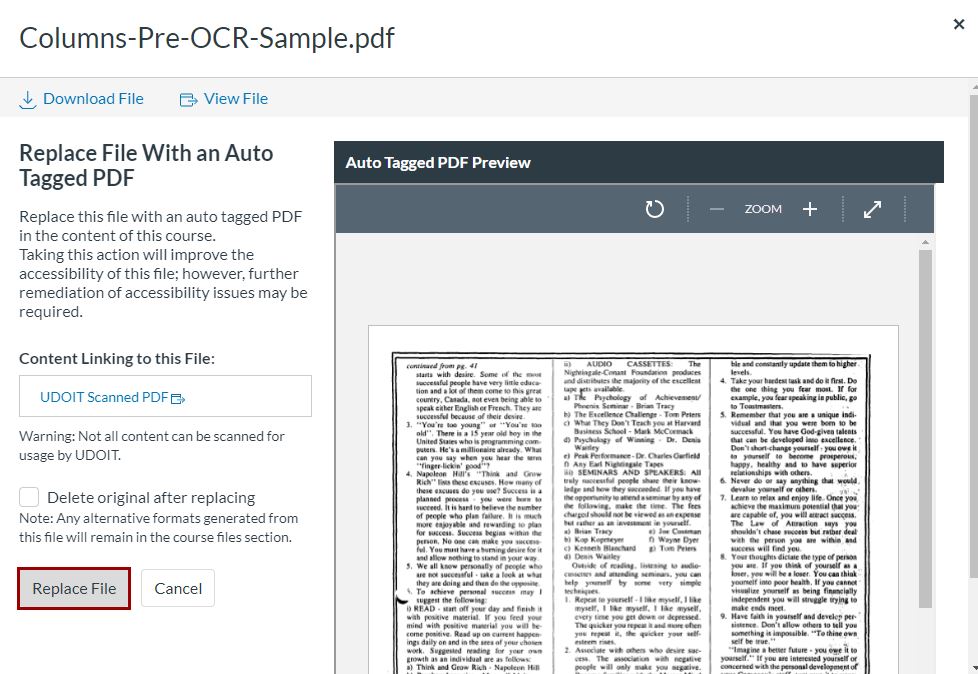
You will receive a confirmation that the file has been replaced. Repeat the process with other scanned files in your course.
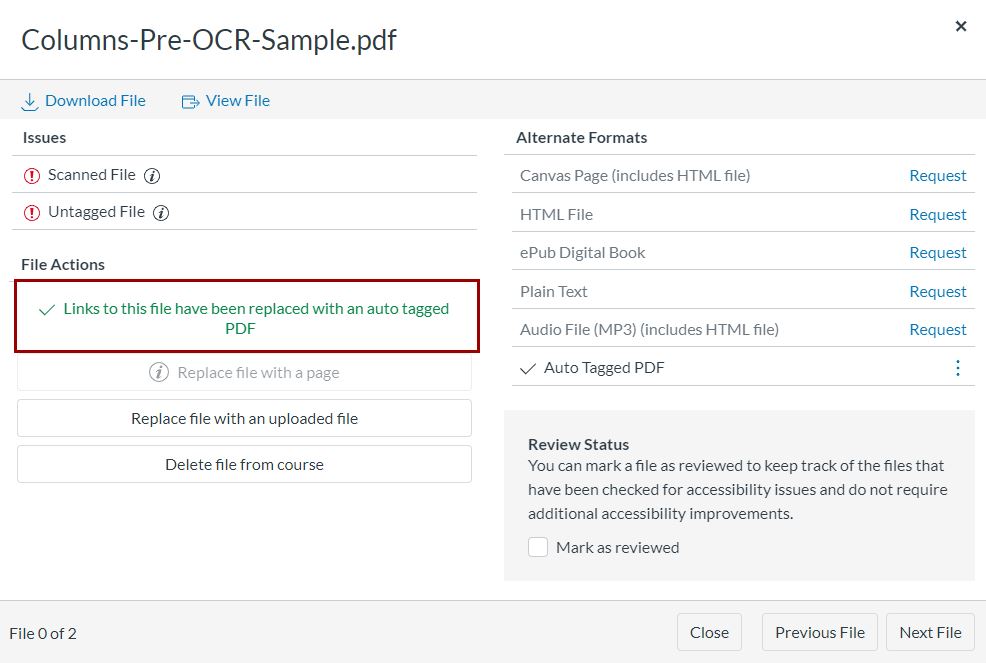
Support and Feedback
The Scanned PDF remediation feature of UDOIT is new this year, so there may be some bugs that need to be worked out.
- For tech support, email CSU Online’s Faculty Support team
- To provide feedback on features, contact Cidi Labs
- To let us know whether or not you feel this is a helpful tool, contact us
UDOIT is a convenient way to fix scanned PDFs directly in Canvas, but you can also use Adobe Acrobat Professional if you prefer. See Scanned PDF for other options besides UDOIT or if you have PDFs outside of Canvas.
Why Does it Matter?
Students and faculty describe what happens when PDFs are not accessible:
Text-to-speech software working with an accessible PDF:
Resources
Accessibility is the shared responsibility of everyone on campus. Remember that creating accessible materials is a journey, not a destination; often, small steps make a big difference. We are here to support you!
The 2023-2024 campaign is a collaborative effort of the Assistive Technology Resource Center, CSU Online, and the Inclusive Physical and Virtual Campus Committee.


